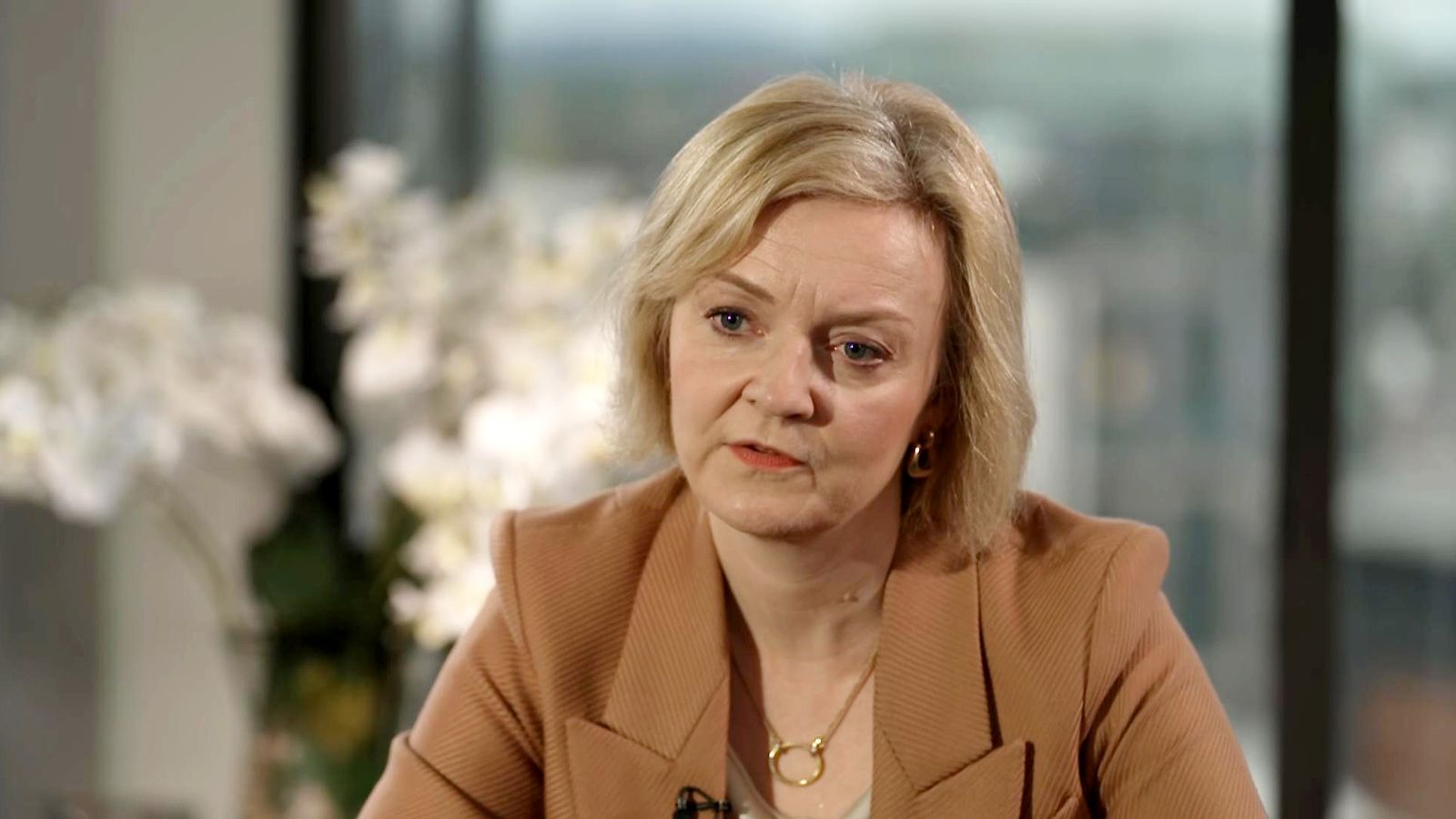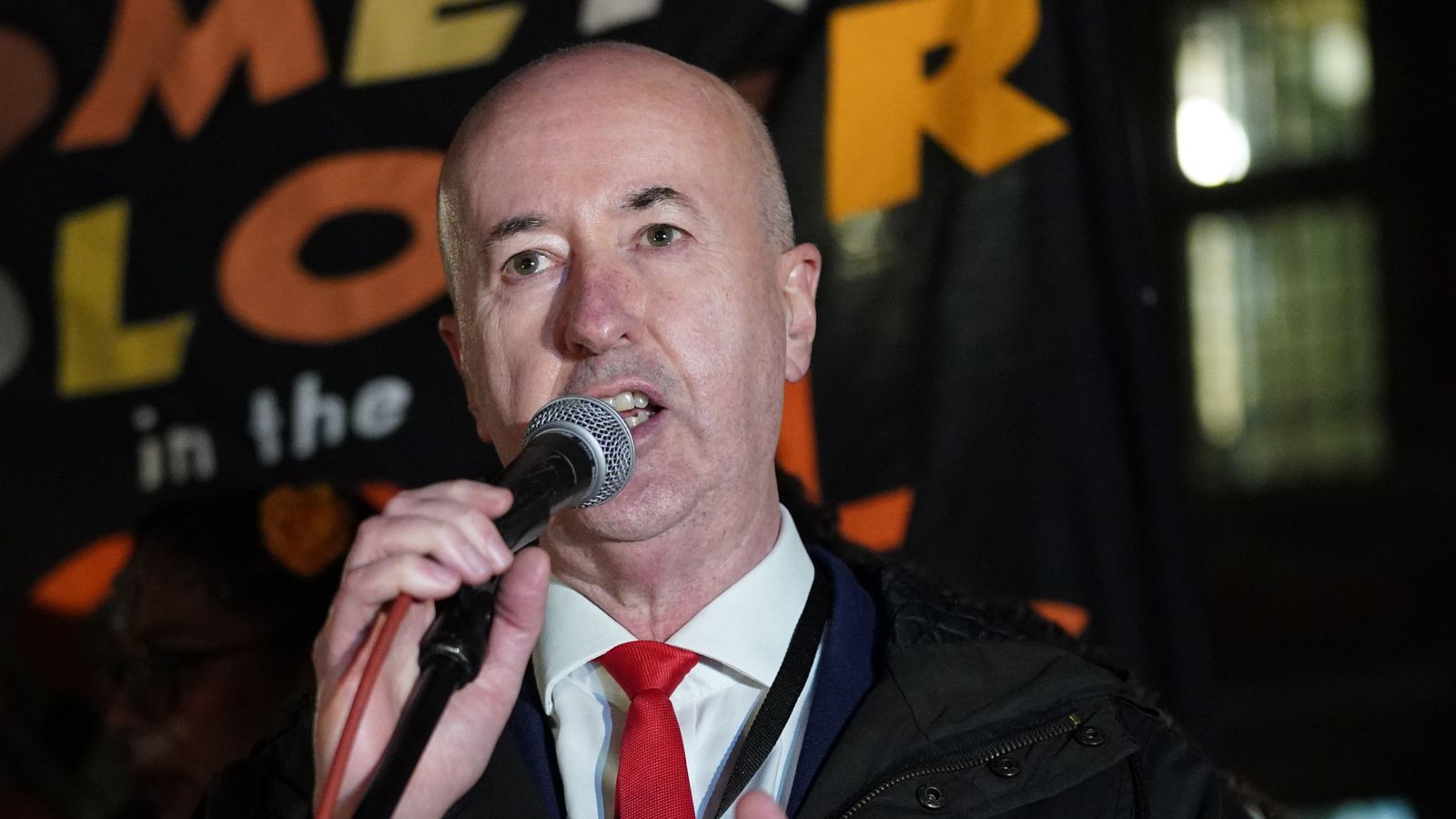Scotland’s Choice: that was the slogan emblazoned across the podium Nicola Sturgeon stood at as she gave her victory speech.
The SNP is just short of the outright majority it so craved, but there is a pro-independence majority in the new Scottish Parliament.
Ms Sturgeon said Boris Johnson would be “picking a fight with the democratic wishes of the Scottish people” if he tried to stand in the Scottish government’s way.
The SNP is leader out of the blocks as the battlelines between Holyrood and Westminster are drawn.
Ms Sturgeon set out her roadmap to a legal referendum in January and the SNP-led Scottish government now has the votes to pass the legislation. Whether the referendum actually happens is an entirely different matter – more on that later.
For Scottish Unionists and the UK government, the SNP’s failure to win an outright majority handed them a weapon in their arsenal. So too the failure of pro-independence parties to win over 50% of the popular vote.
Both with the same goal, but watch in the coming weeks and months how their tactics differ.
The Scottish Unionists will play political hardball by trying to undermine the basis of the Scottish government’s mandate.
We saw the beginnings of that on Saturday as Scottish Conservatives began attacking the SNP, arguing that pro-independence parties did not win an overall majority nor support for an independence referendum by the popular vote.
Paul Masterton, who was a Scottish Conservative during the Westminster Brexit wars, said: “The Scottish people have voted, by a majority, for parties who oppose a second referendum. A democrat would respect that.”
Elected in the 2017 general election – only to lose his seat in the 2019 Brexit one, he drew parallels between Theresa May’s predicament during Brexit and Ms Sturgeon’s on this result.
“I remember the last time a serving leader failed to win a majority, claimed it was a great result as they’d got record vote share and numbers, and relied on another party to try and push a policy through a bitterly divided parliament which half the country didn’t want. Ended well,” said Mr Masterton.
Scottish Conservatives at the sharp end then, but the UK government will take a very different tone.
Boris Johnson is clear he will not consent to a second referendum under any circumstances, but the tone and approach of his administration will be to try to ameliorate, pacify, placate.
There is a calculation in Westminster that the SNP want to stoke “grievance politics” to further the case for independence. Mr Johnson is determined not to take the bait.
This strategy was laid bare on Saturday night with a letter the prime minister has sent to Scotland’s first minister asking her to attend a COVID recovery summit to discuss how all the nations of the UK tackle the “shared responsibility” of economic recovery, lost education and backlogs in the NHS and courts.
“Overcoming them will require us to show the same spirit of unity and cooperation that marked our fight against the pandemic,” the letter says.
The prime minister will also phone Scotland’s first minister on Sunday to congratulate her on her electoral success. In his letter, there is no mention at all of another independence referendum.
“We haven’t referenced it because it’s not going to happen,” explains one government figure.
“What we are focusing on is COVID recovering. I’m sure [Nicola Sturgeon] won’t like it, but it’s about binding them into a process about how we deal with the backlogs and catch-up.”
The second strand of government strategy will be to use the time before the Scottish government tables its referendum bill (the SNP has said it will first tackle COVID recovery before holding a second independence referendum) to make the case for the Union.
This will be by both showing the benefits – helping to clear NHS backlogs in English hospitals – as well as pointing to the unanswered questions: can Scotland realistically re-join the EU? What would happen to people’s pensions or public funding if the nation split from the UK?
For the SNP, the task is clear. To push on with the legislation to hold a referendum, knowing that without Mr Johnson’s consent it will end up in the courts – a wrangle that senior SNP figures are certain will only further their cause.
Because while the Scottish government has the right to pass the legislation, the UK government has the right to challenge it in the Supreme Court if it decides it goes beyond the scope of the devolved government’s power.
A battle the UK government is confident it would win, this would leave the SNP snookered – Angus Robertson, the former SNP Westminster leader and new MSP for Edinburgh Central admitted as much in our interview on Saturday – but also with renewed momentum.
“I acknowledge there’s a risk that the UK government may seek to block democracy in Scotland,” he says.
“Yes, that is a risk. But we have to reflect on what we’re actually talking about here – a United Kingdom government overriding the wishes of a constituent part of the United Kingdom; to do such a thing would be extraordinary.
“It would be undemocractic. And it would be the actions of a government with the mindset of the nineteenth century rather than a democracy of the twenty-first century. It makes independence inevitable.”
To bind Scotland to the United Kingdom by law rather than choice, will be an argument that the SNP hopes will galvanise a nation that is bitterly divided over the matter of independence, right down the middle – to hold one without a clear margin for leave would of course be a huge risk for the SNP. A battle with the loathed Boris Johnson in Scotland might help.
For all these reasons, the prospects of a second referendum before 2024 look slight, but the constitutional battle is nailed on. And it means politicians in Holyrood will really be able to set the agenda in Westminster.
This set of local and national elections has revealed a United Kingdom whose nations are diverging.
Conservative England. SNP Scotland. Labour Wales. And that throws up a profound dilemma for Boris Johnson – cementing his position as leader of England as the rest of the Union threatens to drift away.




